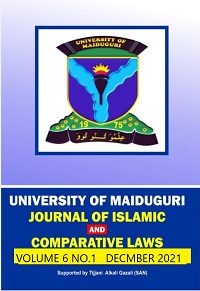The Legalese Of Human Rights Protection In Nigeria: So Much On Paper
ABSTARCT
It is an established fact that women are the most vulnerable
and severely targeted group during and after armed
conflicts. Frequently, they are faced with different forms of
human rights violations including Gender Based Violence
(GBV) or better put as Violence Against Women (VAW).
In most cases such violence if committed during armed
conflicts will constitute different levels of grave breaches
of international humanitarian and human rights laws.
Although, GBV/VAW, apart from being a violation of
human rights, can equally be considered as a threat to peace
and eventually amounts to inequality and injustice. To this
effect, several attempts, including setting up legal
mechanisms have been made by the international, regional
and national bodies to tackle the menace but to no avail. A
number of treaties and resolutions intended specifically to
prevent these violations with a view to bringing
perpetrators to book have been severally adopted by many
stakeholders including penal repression and provision of
adequate compensation. To this effect therefore, this article is aimed at unravelling this lingering problem bedevilling
protection against GBV through the law with a view to
providing pragmatic and realistic measures. However, it
has been identified that apart from the legal mechanisms
put in place, other measures too are significant and
necessary. In fact, they always play more significant role
towards effective protection against GBV during and after
armed conflicts than the strict legal measures; as such, the
demands for injecting moral values in people through civic
education is considered as necessary.
There are no reviews for this Journal.
About the Journal
About
Editorial Team
Curent issues
Archive
DOWNLOADABLES
Guide for contributors
Authors Response Form
Manuscript review Form
Make a Submission

